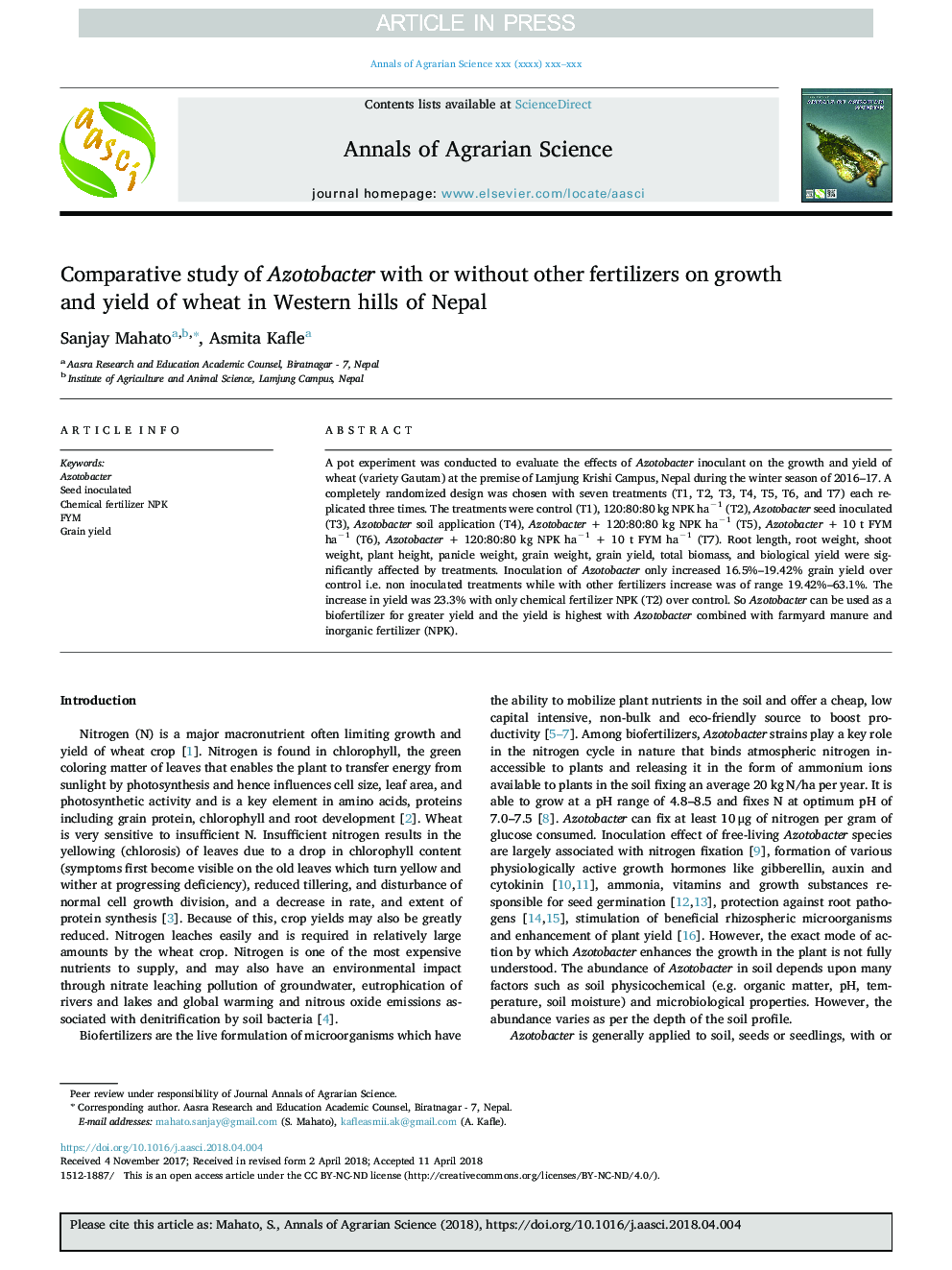| Article ID | Journal | Published Year | Pages | File Type |
|---|---|---|---|---|
| 10226639 | Annals of Agrarian Science | 2018 | 7 Pages |
Abstract
A pot experiment was conducted to evaluate the effects of Azotobacter inoculant on the growth and yield of wheat (variety Gautam) at the premise of Lamjung Krishi Campus, Nepal during the winter season of 2016-17. A completely randomized design was chosen with seven treatments (T1, T2, T3, T4, T5, T6, and T7) each replicated three times. The treatments were control (T1), 120:80:80â¯kg NPK haâ1 (T2), Azotobacter seed inoculated (T3), Azotobacter soil application (T4), Azotobacter + 120:80:80 kg NPK haâ1 (T5), Azotobacter + 10 t FYM haâ1 (T6), Azotobacter + 120:80:80 kg NPK haâ1 + 10 t FYM haâ1 (T7). Root length, root weight, shoot weight, plant height, panicle weight, grain weight, grain yield, total biomass, and biological yield were significantly affected by treatments. Inoculation of Azotobacter only increased 16.5%-19.42% grain yield over control i.e. non inoculated treatments while with other fertilizers increase was of range 19.42%-63.1%. The increase in yield was 23.3% with only chemical fertilizer NPK (T2) over control. So Azotobacter can be used as a biofertilizer for greater yield and the yield is highest with Azotobacter combined with farmyard manure and inorganic fertilizer (NPK).
Keywords
Related Topics
Physical Sciences and Engineering
Engineering
Biomedical Engineering
Authors
Sanjay Mahato, Asmita Kafle,
